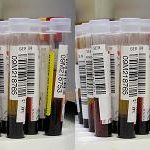Bulimia
Articles, Videos and treatment options for Bulimia
Bulimia Nervosa, also known simply as bulimia, is an eating disorder characterized by recurrent episodes of binge eating (bingeing) as well as a compensatory behavior intended to prevent excessive weight gain. According to the National Institutes of Mental Health (NIMH), 0.6% of the U.S. population will be affected by Bulimia during their lifetime.
You can read our overview of bulimia here, or scroll down to browse the latest articles and videos.

With bulimia, coping comes in two forms. The first is how the victim deals with their illness, the second comes in when their family has to cope with the condition in someone they care deeply about. The bulimic has two significant coping mechanisms available, one healthy, the other deadly. The healthy approach is to accept …
Read More

Dietary laxatives are substances that help to stimulate bowel movements. Laxatives come in many different forms, and they can be powerful cleansing agents for people with constipation issues. As a weight-loss tool, however, laxatives can be dangerous and habit-forming. Types of laxatives There are a few main types of laxatives. The first are called bulking …
Read More

Approximately 24 million people suffer from an eating disorder, according to the National Association of Anorexia Nervosa and Related Disorders (ANAD). Bulimia and anorexia represent two of the three most common eating disorders, with binge eating being the third. If left untreated, these disorders can result in death. In fact, eating disorders have the highest …
Read More

Bulimia, also referred to as bulimia nervosa, is one of three common eating disorders that cause serious problems for people who suffer from it. According to the National Institutes of Mental Health, the average age of onset for the disease is 20 years old with more females being affected with bulimia than males. If you …
Read More

Bulimia nervosa is an eating disorder defined by a person’s obsession with binge eating and weight loss. In order to lose weight quickly, some men and women turn to self-induced vomiting. Most Common Effects Induced vomiting often creates calluses and scars on the knuckles or hands. Additionally, the cheeks may become puffy from repeated vomiting …
Read More

There are several blood tests that can support a diagnosis of bulimia, but none will give a firm diagnosis on their own. The reason for this is that the lack of nutrients leading to the abnormalities can come from other diseases. Furthermore, someone may be bulimic and still be getting enough nutrition to mask the …
Read More

Bulimia is a serious eating disorder in which a person consumes an excessive amount of food within a short period of time (binging) and then attempts to undo the “damage” by removing the food through purging, fasting, or exercising. Individuals who suffer from bulimia characteristically feel out of control when binging, followed by episodes of …
Read More

Non-purging bulimia describes compensatory behavior that a person may use in order to control their food intake and weight. However, it does not include common bulimic symptoms such as inappropriate use of laxatives and diuretics, and self-induced vomiting. Non-purging bulimia is characterized by patterns of binge eating followed by ingesting medications such as diet pills …
Read More

Once a person with bulimia enters treatment, he or she comes under the care of a team of health professionals. Sometimes that team decides that prescribed medications would be beneficial for their client. Selective serotonin reuptake inhibitors (SSRI’s) are widely prescribed for bulimia. They raise the levels of serotonin in the brain, improving the functioning …
Read More

Bulimia is a condition that affects about 1 to 4 percent of women in their lifetimes, according to the National Association of Anorexia and Associated Disorders (ANAD). Bulimia is usually diagnosed through criteria set forth in the Diagnostic and Statistical Manual of Mental Disorders (DSM). The newest edition, DSM-5, outlines a set of characteristics and …
Read More
 Eating Disorder Self Test. Take the EAT-26 self test to see if you might have eating disorder symptoms that might require professional evaluation. All answers are confidential.
Eating Disorder Self Test. Take the EAT-26 self test to see if you might have eating disorder symptoms that might require professional evaluation. All answers are confidential.
Find a Treatment Facility Near You
Click on a state below to find eating disorder treatment options that could be right for you.










 Eating Disorder Self Test. Take the EAT-26 self test to see if you might have eating disorder symptoms that might require professional evaluation. All answers are confidential.
Eating Disorder Self Test. Take the EAT-26 self test to see if you might have eating disorder symptoms that might require professional evaluation. All answers are confidential.